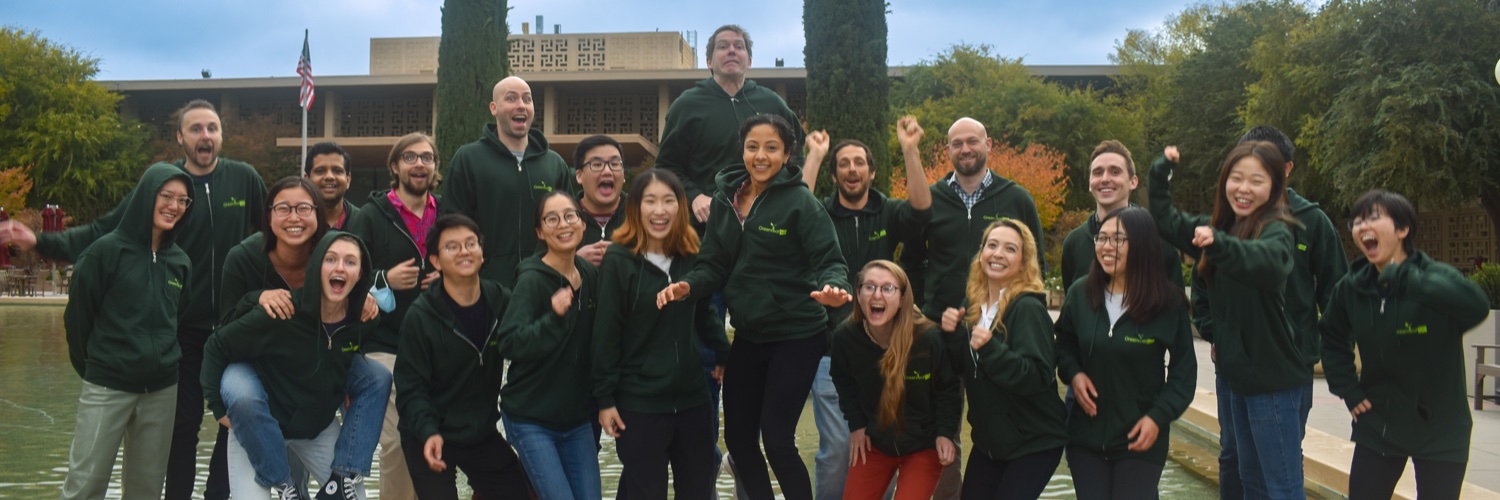
William J. Greenleaf
@WJGreenleaf
Professor, Stanford University, Department of Genetics. Exploring the physical genome
Pleased to announce this latest work from the lab!
Delighted to share our latest work deciphering the landscape of chromatin accessibility and modeling the DNA sequence syntax rules underlying gene regulation during human development! biorxiv.org/content/10.110…. Read on for more 🧵 [1/16]
1/ Have you ever run out of memory while trying to analyze a large scRNA-seq or scATAC-seq dataset? Check out our new preprint from @WJGreenleaf lab about BPCells: an R package for high performance single cell analysis. Read on for more 🧵 biorxiv.org/content/10.110…
Our work using thermodynamic principles to link in vitro TF affinities and kinetics to single-molecule chromatin states in cells is now on bioRxiv! Amazing effort by first author @juliaschaepe in @WJGreenleaf lab: biorxiv.org/content/10.110… @Stanford @scilifelab @Stockholm_Uni [1/9]
Huge congrats to Howard! We will sorely miss him here at Stanford, but wish him all the best for this immensely exciting opportunity!
Excited to welcome @HowardYChang to @Amgen as our new SVP for Research & CSO! A pioneering physician-scientist, Howard’s expertise in genetics, oncology, & inflammation will help us push the boundaries of discovery. We’re excited to embark on this journey together to redefine the…
Incredibly excited that our paper linking single molecule states of TF binding to gene expression using quantitative thermodynamic models is out in Nature today. An amazing collaboration with the Bintu Lab. Congrats to Ben, Michaela, and Julia! nature.com/articles/s4158…

Our single-cell, pan-cancer analysis of open chromatin in human cancers, done in collaboration with TCGA and the Chang and Corces labs (among others including Illumina), is out in Science today. Congrats to Laksshman Sundaram and all authors! science.org/doi/10.1126/sc…
The Greenleaf and Gifford Labs are looking for graduate students and postdocs interested in perturbing transcription factors and chromatin remodelers in human heart organoid systems with an aim of quantitatively understanding drivers of normal human development. Email Will!
The Greenleaf lab is looking to recruit graduate students and postdocs interested in combinatorial cell state engineering. If you are interested combining multiplex perturbations and single cell readouts to "push" cells into target states, email Will!
The Greenleaf and Pasca Labs are looking for graduate students and postdocs interested in perturbing transcription factors and chromatin remodelers in human brain organoid systems with an aim of quantitatively understanding drivers of normal human development. Email Will!
Our human multipotent lymphoid progenitor paper is finally out! nature.com/articles/s4146… After revision, we added more in vitro validations of the lympho-myeloid potential of this HSPC population. Lots of thanks to @Bendall_Lab & @WJGreenleaf
Excited to share my preprint with @Bendall_Lab and @WJGreenleaf on novel human lymphoid progenitors! Turns out they had been misidentified as myeloid progenitors thus far. Check out how we revealed their true identity in the tweetorial below 🧵biorxiv.org/content/10.110…
The Greenleaf and Pasca Labs are looking for graduate students and postdocs interested in perturbing transcription factors and chromatin remodelers in human brain organoid systems with an aim of quantitatively understanding drivers of normal human development. Email Will!
The Greenleaf lab is looking to recruit graduate students and postdocs interested in combinatorial cell state engineering. If you are interested combining multiplex perturbations and single cell readouts to "push" cells into target states, email Will!
The Greenleaf and Gifford Labs are looking for graduate students and postdocs interested in perturbing transcription factors and chromatin remodelers in human heart organoid systems with an aim of quantitatively understanding drivers of normal human development. Email Will!